Please join us for the "Virtual Bobcat Certificate Program", a conversation with renowned faculty and staff on sustainable research and efforts being conducted at the University of California, Merced.
Click here to participate in Bobcat Certificate Program
Speakers
Josue Medellin-Azuara, Ph.D
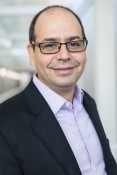
Economic and Social Implications of the Sustainable Groundwater Act
Grounder water in California is historically contributed from 40 to 60 percent of the total applied water in irrigated agriculture. This source has also served as the main buffer against surface water shortages during droughts. As a common pool resource, groundwater has been over-drafted for decades particularly in areas that rely on water imports for irrigation or runoff is less abundant like in the San Joaquin Valley, one of the largest agricultural regions in the world. The 2012-2016 drought catalyzed groundwater legislation and in 2014, the Sustainable Groundwater Management Act (SGMA) became one of the most comprehensive regulations in California's water history. SGMA requires critically over-drafted basins to reach sustainability in various forms including water balance by 2040. This paper presents the potential income and employment impacts for agriculture, related sectors in the San Joaquin Valley in its gliding path towards groundwater sustainability. Some preliminary insights from media coverage and stakeholder interviews will also be provided.
Michael N. Dawson, Ph. D Danielle Edwards, Ph. D
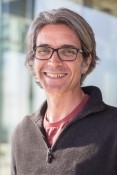
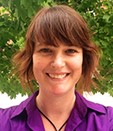
Biodiversity: Not Just Another 'other CO2' Problem
Global atmospheric climate change and ocean acidification are commonly referred to as "the" and "the Other" CO2 problems. Conceptualizing global change this way is comforting because it suggests that if we can just find a way to deal with CO2 - which with outsized hubris is often purveyed as a problem of human ingenuity - we can engineer ourselves out of the current environmental crisis. However, changing physics and chemistry of the atmosphere and hydrosphere are only the surface of a much deeper biological problem: the eradication of species, the diminution of population abundances, and the destruction of habitats and ecosystems i.e. the complex web of life that has, for 4 billion years, shaped this planet's physical and chemical environments in such a way that humans could originate, evolve, and thrive. This biodiversity problem is old (over 13000 years) and so large and so complex that we have barely scratched the surface on any tractable solutions. In this session, we outline the breadth and depth of the Anthropocene biodiversity crisis and its continuing intensification, introduce several case studies from our own work, and describe some of the radical potential solutions that are being investigated.
Katherine Steele Brokaw, Ph. D

Arts, Humanities, and Eco-Activism: Shakespeare in Yosemite and Beyond
In a time of ecological urgency at both global and local levels, how can outdoor theatre both call attention to disturbances in the natural world and ecological crises, while also helping to imagine more cooperative and sustainable treatments of the non-human and human alike? This talk explores this question, with examples from my own practice-based research as co-founder and co-director of Shakespeare in Yosemite, a new festival founded (with Paul Prescott) in 2017, which performs free Shakespeare in Yosemite National Park every April in celebration of Earth Day and National Park Week. Working collaboratively with students and park staff, we create place-based Shakespearean theatre in the heart of Yosemite Valley that foreground themes relating to ecological crisis and, we hope, prompts individual and collective responsibility and action in its audience.
Sarah Kurtz, Ph. D
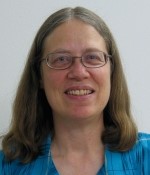
A New Era for Solar
In the last decade, the world deployment rate of Photovoltaic (PV) technology has grown from ~ 2 GW in 2007 to ~ 100 GW/y now, about a factor of 50 growth! IF the deployment rate were to grow by another factor of 50 in the next decade before 2030 the deployment would pass 5 TW, which is comparable to the total world electricity generating capacity today. As the industry grows, the barriers to continued growth are changing, but new opportunities are arising. The Course will review where we find ourselves and the opportunities in front of us.
Colleen Naughton, Ph. D
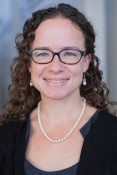
Environmental Life Cycle Assessment of Shea Butter Production in Sub-Saharan Africa
Sustainability comprises three pillars: economic, social, and environmental. It is often perceived that environmental sustainability is more costly. This is often the case when projects and infrastructure are evaluated in the short-term and do not consider the whole life cycle environmental and health costs. In this session, Life Cycle Costing (LCC) and Environmental Life Cycle Assessment tools (LCA) will be discussed that quantify the true environmental and economic impact of processes, projects, and infrastructure.
Guillermo Ortiz, Sustainability & Diversity Education Programs Manager & Breeana Sylvas, Assistant Director of Sustainability


Climate Justice: Examining Climate Change Through an Equity Lens
When climate change and its impact are discussed, often the conversation tends to focus on occurrences of extreme weather events such as wildfires, flooding, hurricanes, heat waves, and drought. Unfortunately, it is rare for the dialogue to include discussions of equity despite the disproportionate impact climate change will have on frontline communities. According to the U. S. Fourth National Climate Assessment - written by a team of more than 300 experts and vetted by 13 federal agencies - low-income communities and communities of color are the most vulnerable to climate effects and other environmental hazards. This is due to the legacy of siting industrial facilities near these communities and other discriminatory housing and infrastructure policies. These factors have left these communities with the fewest resources to prepare for and recover from extreme weather events. To hold global warming to 1.5 degrees Celsius above preindustrial levels and safeguard frontline communities from climate change impacts, climate action must be built on a framework that is centered on achieving economic, racial, and environmental justice.
For any questions, please email the project manager Taylor Cottrell: tcottrell@ucmerced.edu



